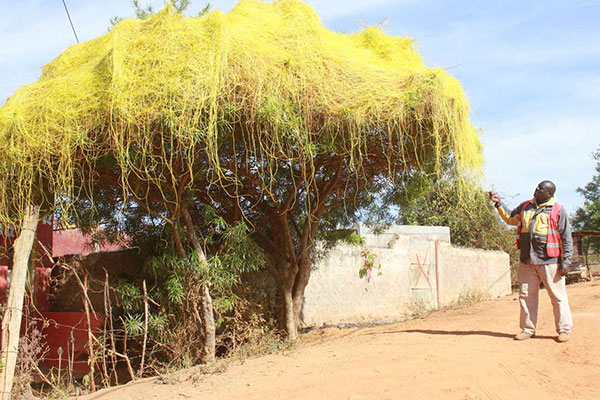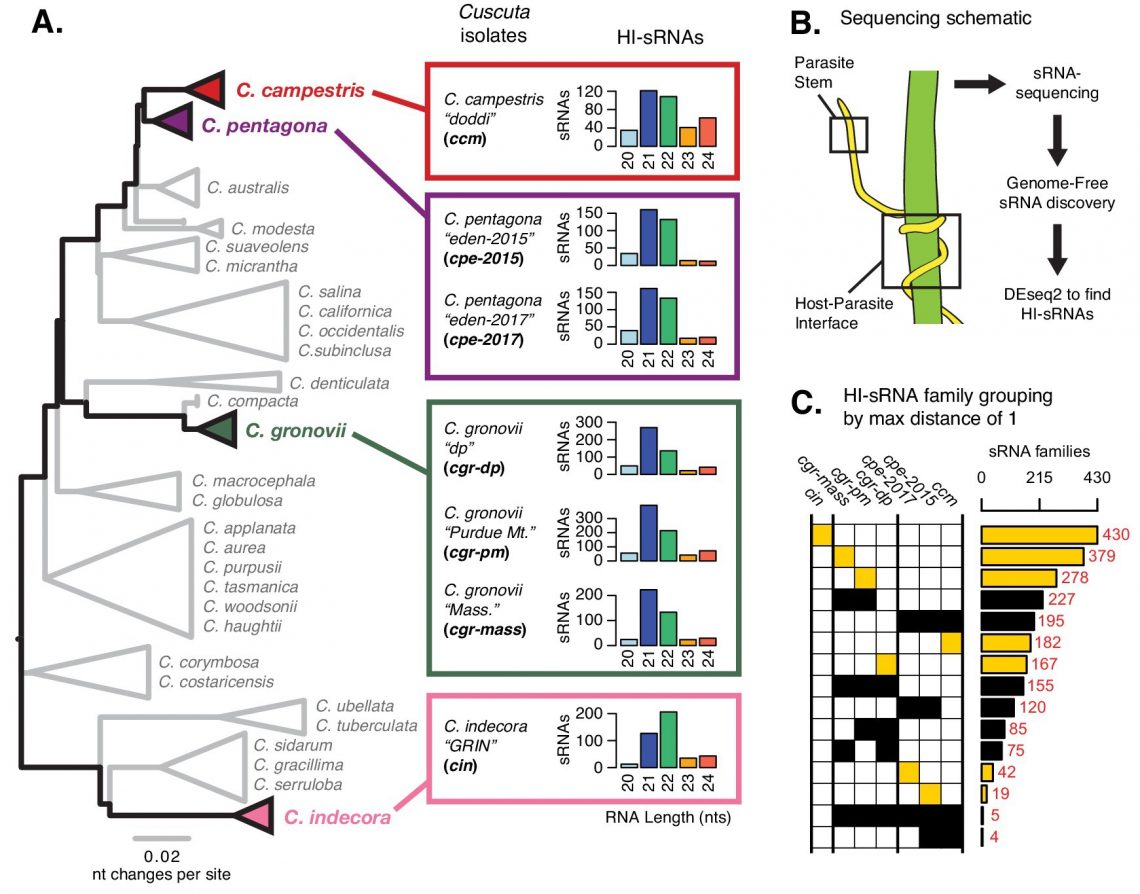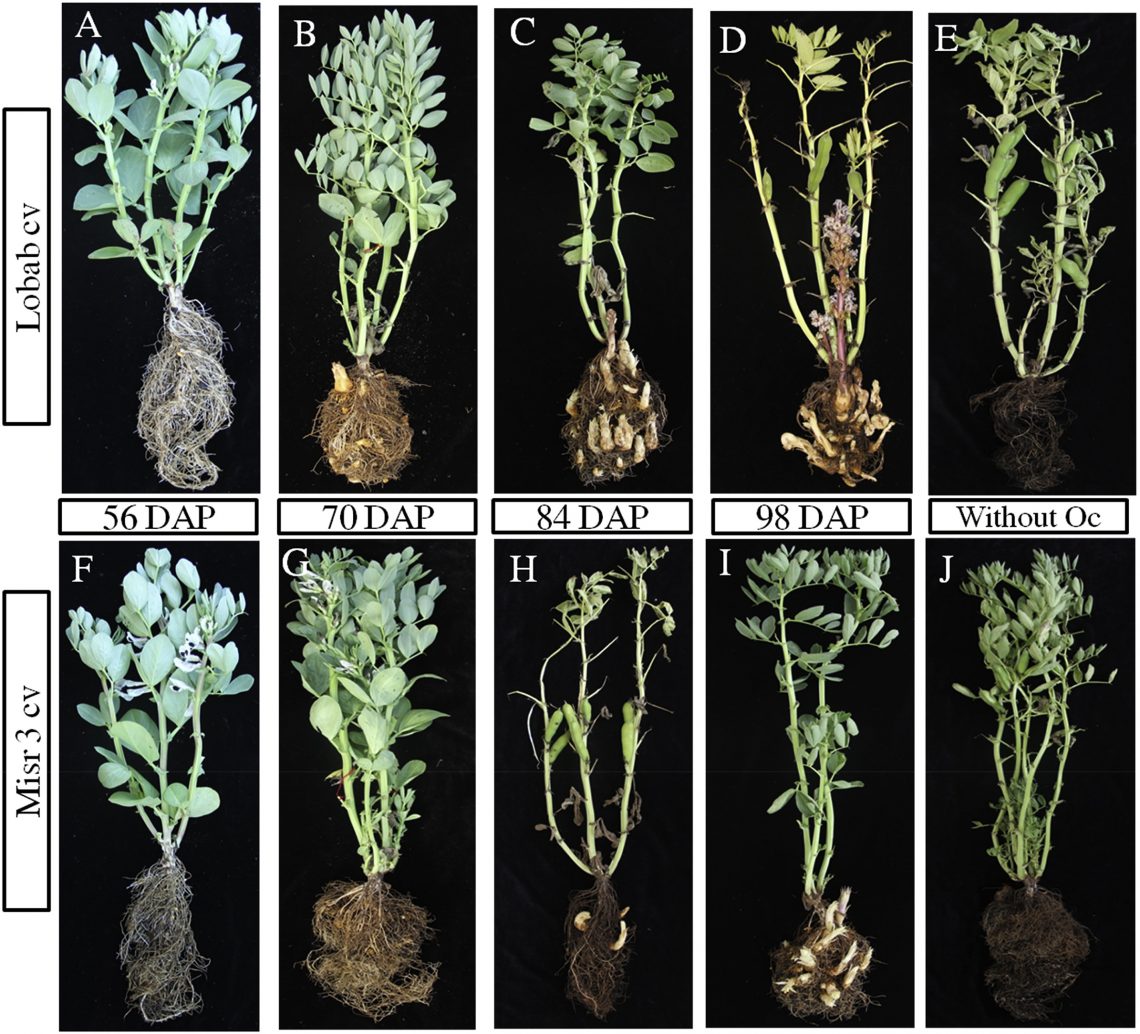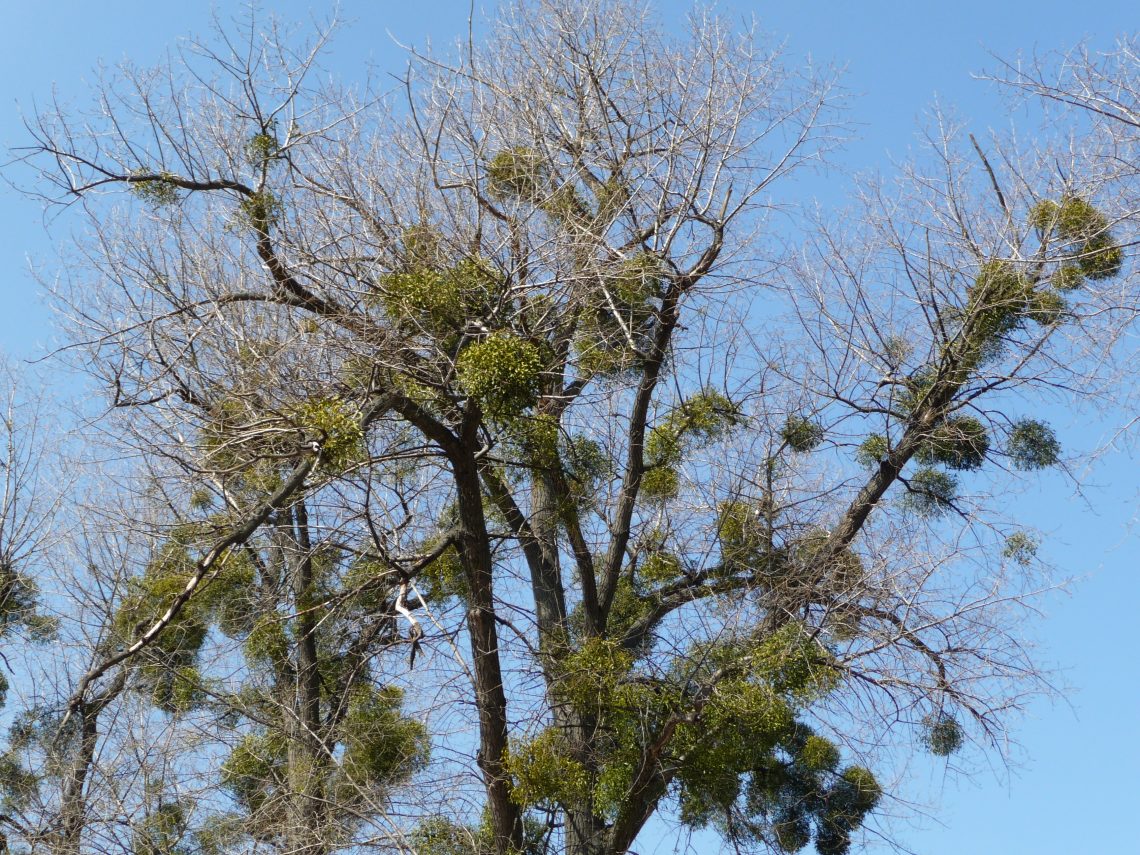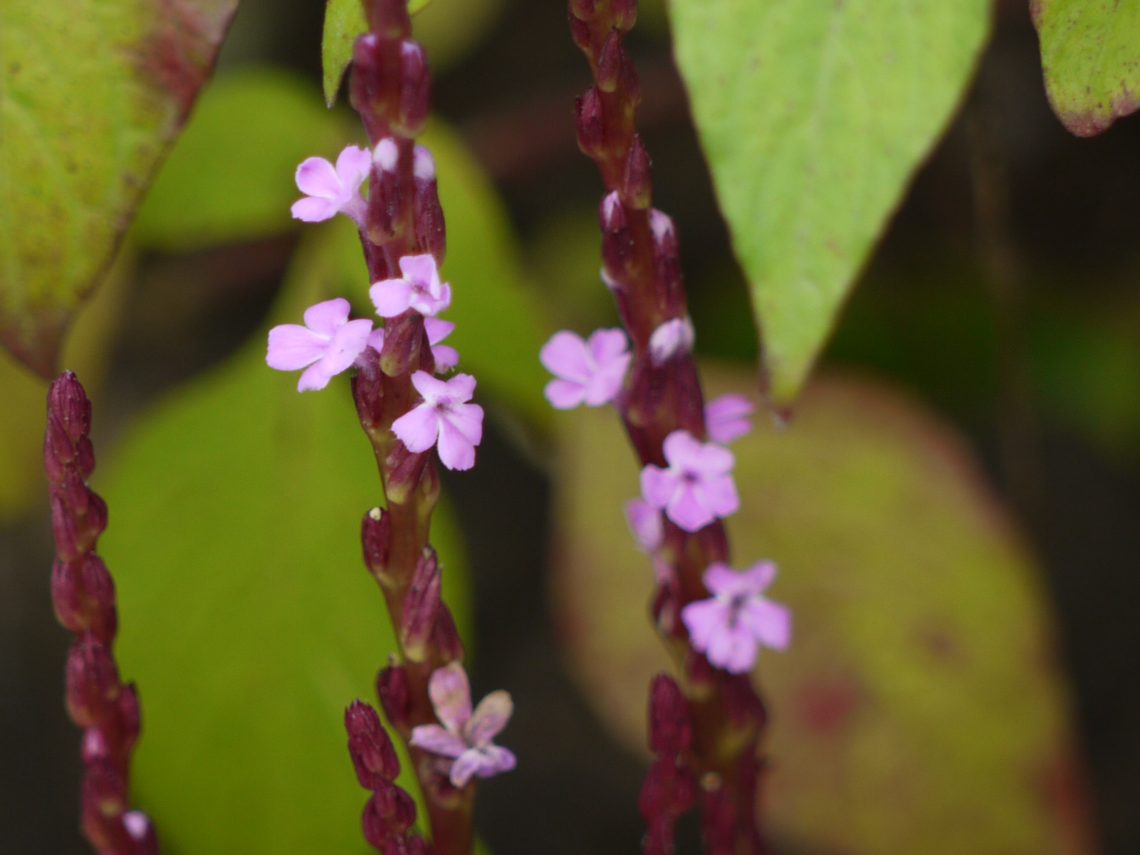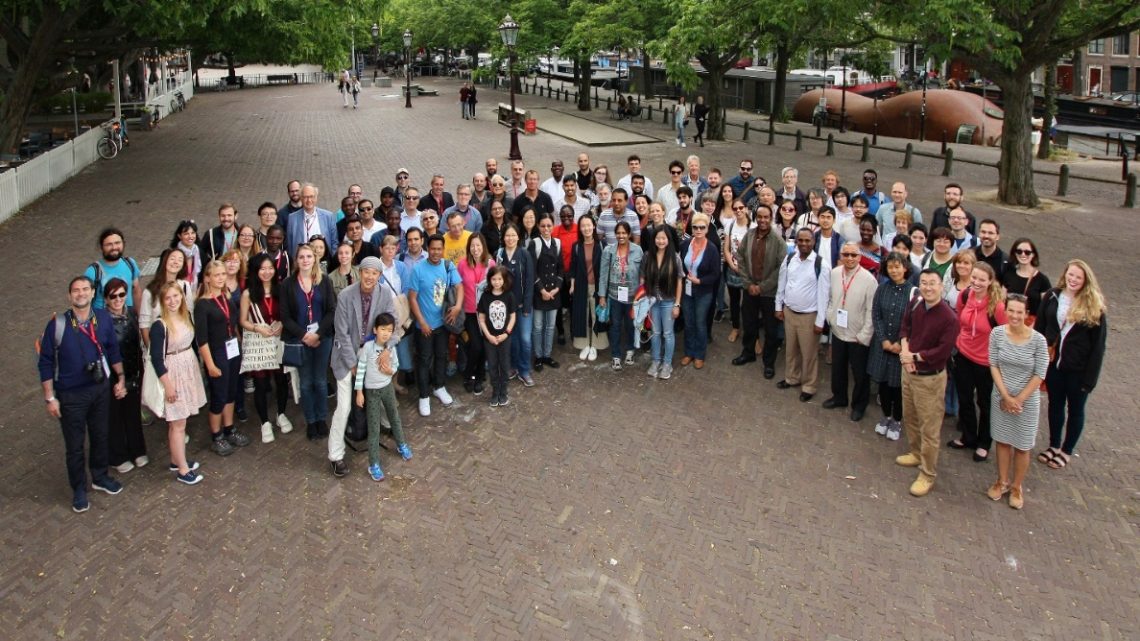Kakamega Forest Senior Manager George Aimo said the dodder plant is a major threat to trees and crops. When Samuel Onyango, a smallholder farmer from Kisumu County, first noticed yellowish spaghetti-like leafless vines hanging loosely on his fence some three years ago, he did not bother about them. Little did he know that it was […]
From Haustorium 76: Dodder plant poses threat to trees and crops
